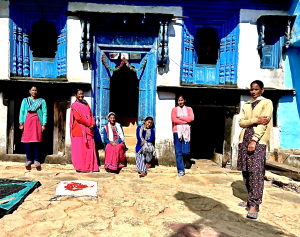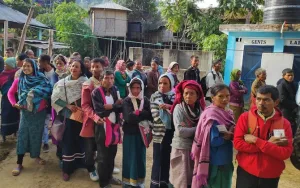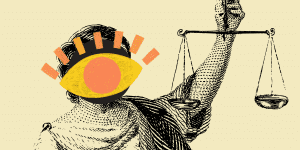Long In The Backseat In Kerala Politics, Women Now Claim Their Space
- Jisha Surya
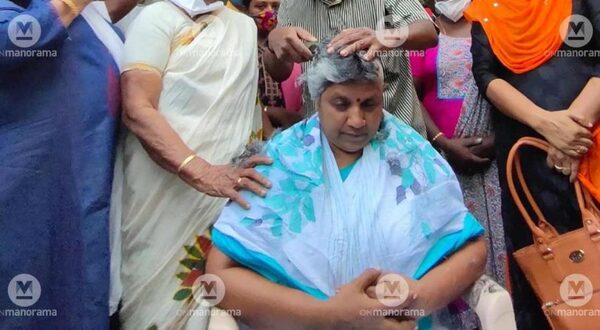
Kerala’s first Member of Legislative Assembly (MLA) was a woman.
Rosamma Punnoose, 44 years-old when Kerala elected its first post-Independence legislative assembly in 1957, was elected from the Devikulam constituency in Idukki district in southeast Kerala. The first MLA to take oath, she became the protem speaker and went on to administer the oath of office to other MLAs on April 10, 1957.
Six women were elected to the first Vidhan Sabha in Kerala in 1957, making up 5.3% of the assembly. The current Vidhan Sabha has only nine women MLAs (6.4% of total MLAs)–a mere 1.1-percentage-point rise in six decades. In fact, the percentage of women MLAs in the Kerala assembly has never exceeded 10%. In some elections, 1967 and 1977, only one woman has been elected.
This poor representation of women in elected positions of power belies the active participation of women in grassroots governance–panchayats and municipalities–where they make up more than half of the elected representatives. Kerala has also achieved higher standards of human development, as indicated by its sex ratio of 1,121 women per 1,000 men, and the fact that 77% of women aged between 15 and 49 years had completed by 2019-20, according to the latest round of the National Family Health Survey.
Mainstream political parties in Kerala have, however, displayed a patriarchal mindset in marginalising women from political and leadership roles at the state level, says B.R.P Bhaskar, a political observer and commentator based in Chennai.
As Kerala gears up to elect its 16th Vidhan Sabha on April 6, 2021, women political leaders are publicly airing their displeasure at this under-representation of women in all major political groupings–the Left Democratic Front (LDF), United Democratic Front (UDF) and National Democratic Alliance (NDA).
Lathika Subhash, president of the Kerala Mahila Congress, the women’s wing of the Kerala Pradesh Congress Committee (KPCC), resigned and publicly tonsured her head on March 14, in protest against being denied a ticket, and against the party’s failure to give tickets to women candidates in the upcoming elections. “I have three decades of experience in politics. I am sad to say that gender parity is a far cry in Kerala politics,” Subhash said on the phone from Ettumanoor, where she is now contesting as an independent candidate after resigning from the Indian National Congress (INC).
Subhash is not alone. Sobha Surendran, one of the senior leaders of the Bharatiya Janata Party (BJP), was left out of the initial list of candidates. It was only after she showed her displeasure that she was declared a candidate from the Kazhakoottam constituency in Thiruvananthapuram district.
Such public display of anger has led the parties to effect some initial course correction. Soon after Subhash’s surprising act and her decision to contest as an independent candidate, the INC decided to allot the Vattiyoorkavu constituency in Thiruvananthapuram district to Veena S. Nair, and to support Revolutionary Marxist Party candidate K.K. Rema. “I am glad that people like Lathika Subhash could put up such a strong protest against unfair representation of women,” said Rema, who is contesting from Vadakara in Kozhikode district in the central Malabar region of Kerala, after her husband T.P. Chandrashekharan was hacked to death after starting a breakaway faction of the Communist Party of India (Marxist) or the CPI(M).
Women’s representation
Women MLAs have never exceeded 10% of Kerala legislative assembly in its 64-year political history. Kerala elected the highest number of women MLAs in 1996, at 13. Since 2001, this percentage has hovered around 5%, but in 1967 and 1977, only one woman was elected to the Kerala Vidhan Sabha.
Women MLAs In Kerala Assembly
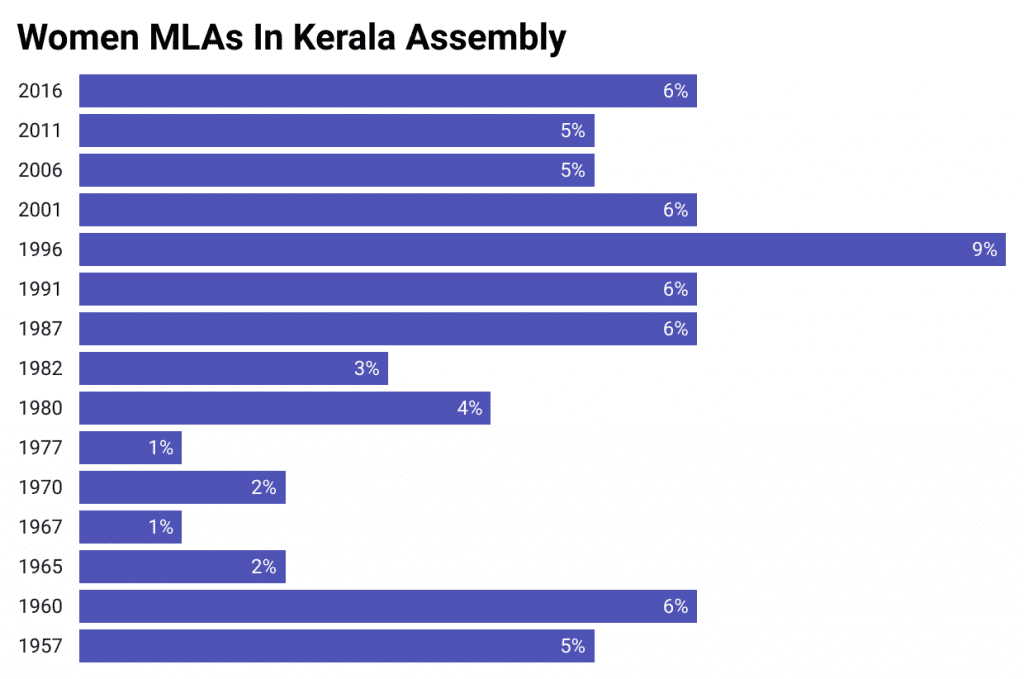
In large part, there are few women MLAs because political parties give few tickets to women to contest elections. Although parties in all the three coalitions have increased the percentage of tickets given to women since 2001, the number has never exceeded 16% of the total contesting candidates.
In the last assembly elections held in 2016, the Communist Party of India gave 16% tickets to women, followed by CPI(M), which gave 14% tickets. Both the BJP and the INC gave 10% of their total tickets to women.
Trends : Tickets Given To Women by Political parties
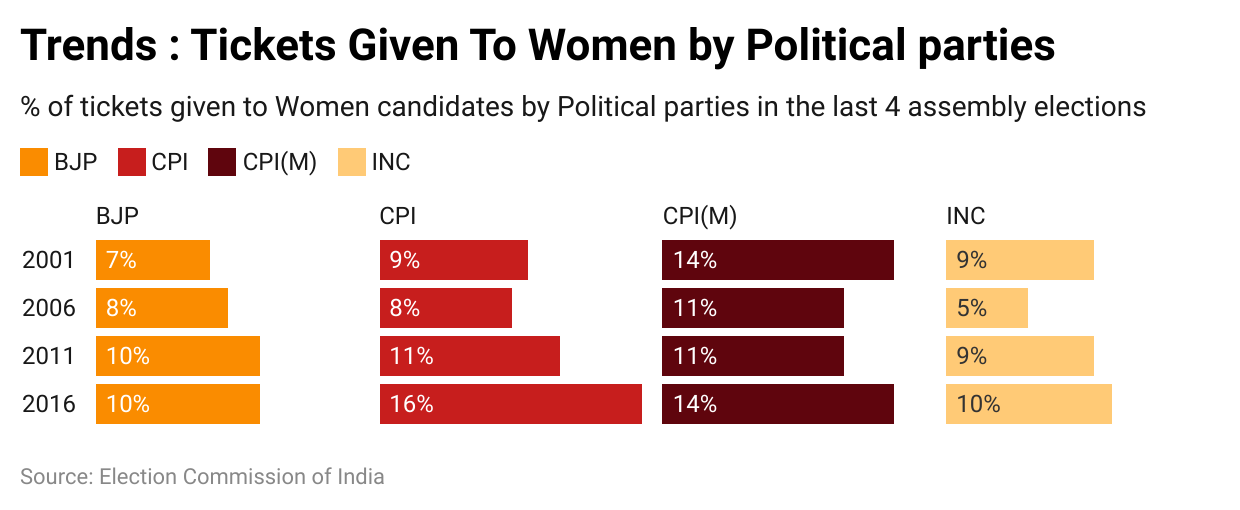
It also matters what kind of tickets are given to women candidates. “The Left parties are better than others,” said A. Jayashankar, an advocate and political observer, “More than half of the seats they give are winnable ones, which explains the higher presence of women MLAs from the Left parties in the Assembly.” In contrast, he said, the INC typically gives unwinnable seats to women.
In 2016, all the eight woman candidates that the INC fielded lost. Shanimol Usman, who won the Aroor seat in a 2019 by-election, was the saving grace for the party in that assembly. In 2011, even when the Congress-led UDF won a majority, P.K. Jayalakshmi, who contested for a seat reserved for the Scheduled Tribes, was the lone woman to be elected. Lathika Subhash, despite being a senior leader in the INC, was fielded only once in her three-decade political career–in 2011 against the incumbent chief minister, V.S. Achuthanandan.
“State-level parties like Indian Union Muslim Leage (IUML), Kerala Congress and others perform the worst,” said Jayashankar. The IUML fielded a lone woman, Noorbina Rasheed, a long-term
member of the party, after 25 years.
How women’s power eroded in Kerala

Women in legislative politics in Kerala touched great heights in the pre-Independence years.
Mary Poonen Lukose, member of the Travancore Legislative Council in 1922, was the first woman member of a legislative council in India. Twenty-three women were members of various legislative councils in Travancore state and 12 in Cochin, before the state of Kerala was formed in 1956.
Women like Annie Mascarene and Accamma Cherian from Travancore and Ammu Swaminathan and A.V. Kuttimalu Amma from Malabar were active in the pre-Independence freedom movement. Dakshayani Velayudhan, the first Dalit woman MLA from the Cochin legislative council in 1945, went on to become a member of the constituent assembly of Independent India.
The decline in women’s participation in the political sphere began in the 1960s and ‘70s, according to Bhaskar, the Chennai-based political analyst. In post-Independence Kerala, women such as K.R. Gowri (popularly known as Gowri Amma) and Susheela Gopalan, both of whom were once strong contenders to become the chief minister of the state, played a crucial role in Kerala’s politics. However, they were shortchanged by their party, said Bhaskar, in keeping with “the highly patriarchal Kerala society”.
Women continue to work in the political sphere in Kerala, Bhaskar said, adding, “But they are more submissive versions of their predecessors like Accamma Cherian or Gouri Amma.”
Take the case of K.K. Shailaja, the popular health minister of the state.
‘Shailaja Teacher’, as she is known after her previous teaching stint, Shailaja has received widespread recognition for her handling of the Nipah epidemic in 2018 and the COVID-19 pandemic since 2020. She has been called a ‘coronavirus slayer’ and ‘rockstar minister’ by the international media for her effective and scientific handling of the pandemic.
When the first five confirmed COVID-19 cases came to the fore on March 8, 2020, Shailaja began holding a daily press meet that gained state-wide attention. People across the state, irrespective of their political affiliations, eagerly waited for the latest updates from their health minister. “Within a few days, chief minister Pinarayi Vijayan took over the popular press meet from her,” said Bhaskar.
Political observers like Bhaskar believe that this takeover of the daily press meets was aimed at cutting a very popular health minister down to size. Shailaja, to whom the health officials reported COVID-19 statistics on a daily basis, was relegated to being a silent spectator at these press meets.
Shailaja remains absent in the ongoing campaigning, with chief minister Vijayan being portrayed as the ‘captain’ of the team in the LDF’s publicity blitz.
The edging out of popular women leaders from the chief minister’s position is not new in Kerala. Popular and strong women leaders have twice been denied the chief minister’s position in the state.
The year 1987 in Kerala’s political history
KR Gowri, Kerala’s first woman minister and Revenue minister who was denied the chief minister’s position in 1987/ credit: New Indian Express
In 1987, the Left Democratic Front went to the polls projecting the popular CPI(M) leader Kalathilparambil Raman Gowri Amma as its chief ministerial candidate. As the first lawyer from the Ezhava community, a ‘backward’ caste, Gowri Amma had faced police brutality and incarceration for participating in political activities in the early 1950s. As Kerala’s first woman minister and first revenue minister in 1957, she had been instrumental in introducing revolutionary legislation such the Land Reforms Bill.
Though the CPI(M) had not officially announced her name for the chief minister’s position, election posters in 1987 featured the slogan, “Keram Thingum Kerala Naatil K.R. Gowri Bharikkatte” (Let K.R. Gowri rule Kerala, the land of coconut tree). “It was CPI leader P.K. Vasudevan Nair who first raised this slogan in an election convention for Gowri Amma at Thuravoor under the Aroor constituency. Gowri tried to interrupt Nair, stating that it was never discussed in any party forums,” said P.S. Satheesh Kumar, author of Kanalormakal (Embers of Memory), a soon-to-be published biography of Gouri Amma.
The LDF won 78 of 140 seats. However, at the party’s state committee meeting to decide the future chief minister, veteran communist leader E.M.S. Namboodiripad proposed the name of E.K. Nayanar, a senior CPI(M) leader who went on to become a three-time chief minister of Kerala. “No one in the committee raised any objection,” said Satheesh Kumar. Nayanar became the chief minister.
Despite her seniority, Gowri Amma was never elevated to the Kerala CPI(M) state secretariat, or its central committee or national politburo. After a series of disagreements on several issues, the CPI(M) expelled her from the party for ‘anti-party activities’.
An unflinching Gowri Amma, who had a huge support base in her home district Alappuzha in which part of Kerala, founded Janadhipathya Samrakshana Samithi (JSS), which later merged with the UDF. K.R. Gowri was elected to the Kerala assembly in every election between 1960 and 2001, except for 1977.
A similar situation arose in 1996 with senior LDF leader Susheela Gopalan, after the LDF won a majority in elections that year and proposed her name for the chief minister’s post. In a vote within the party’s state committee, she lost by one vote to E.K. Nayanar, who had not even contested the election that year. Nayanar went on to become the chief minister once again and was later elected in a by-election from Thalassery in North Kerala. Gopalan went on to serve as the minister for industries in the Nayanar cabinet.
“Susheela, an Ezhava and a woman, was merely propped up as a candidate to mitigate the damage caused by the incident of Gowri Amma in 1987,” said Bhaskar.
“Political parties in Kerala cannot accept women who defy the patriarchal norms,” said Rekha Raj, a Dalit feminist and assistant professor at the School of Gandhian Thought and Development Studies at the Mahatma Gandhi University in Kottayam. “Society cannot accept women who do not satisfy the male gaze or the male ego. That is why we don’t often see women who are divorced, single, belong to sexual minority groups etc. as politicians. [The] morality of women in the public sphere is always under scrutiny.”
Given their poor representation in the legislative assembly, women’s representation in the state cabinets has been worse. Since 1957, only eight women have served as cabinet ministers in Kerala. With two women ministers, the current LDF government headed by Pinaryi Vijayan holds the record for the maximum number of women in the Kerala cabinet.
Women from marginalised communities find it hard
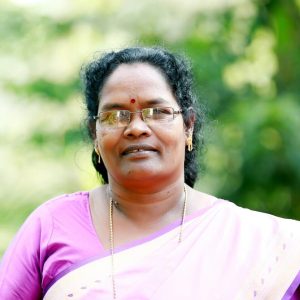
The situation is worse for women from marginalised communities, such as Dalits and Adivasis.
Women-led Pombilai Orumai, a trade union movement that was well on its way to becoming a political party, is a case in point. Pombilai Orumai was started by ‘backward’ caste women tea plantation workers in 2015, for demanding fair wages and better living conditions in Munnar’s tea gardens. What began as a nine-day strike in the Kannan Devan Hills Plantations Limited (KDHP), one of the largest tea estates in South India, soon caught the attention of the mainstream political parties and the government of Kerala. Workers earned a minimum wage of Rs 234 for a 12-hour work day, and demanded that this be increased to Rs 500.
Pombilai Orumai won two Gram Panchayat seats and one Block Panchayat seat in the local body election held that year. Soon after, the movement split up and eventually declined, due in large part to consistent efforts by trade unions and mainstream parties to destabilise it. G. Gomathi, one of its founding leaders, contested the 2019 Lok Sabha elections but lost.
Adivasi leader C.K. Janu is yet another political candidate who has found it hard to find a place in electoral politics. Janu led the historic Muthanga agitation in 2003, the biggest Adivasi uprising in the state, under the banner of the Adivasi Gothra Mahasabha to demand land allotment to Adivasis. Janu launched her party, the Janathipathya Rashtriya Sabha, in 2016 and contested unsuccessfully from the Sulthan Bathery constituency in the 2016 Vidhan Sabha elections as an NDA-backed candidate. She is once again contesting from the NDA front in the upcoming elections. G.Gomathi of Pombilai Orumai said that she cannot blame Janu for aligning with the BJP-led NDA front. “After a point, it is very difficult to survive without the support of a mainstream political party,” she said, after refusing an offer to contest on the party’s ticket on ideological grounds.
“I have tried to associate with various Dalit movements and progressive organisations in the last few years, but many of these groups are confined to online activism. For someone like me who wishes to see a major change in the standard of living of the plantation labourers, associating with a mainstream party is inevitable. However, neither mainstream parties nor progressive organisations invite me to their fold,” said Gomathi, who is not contesting elections this time.g
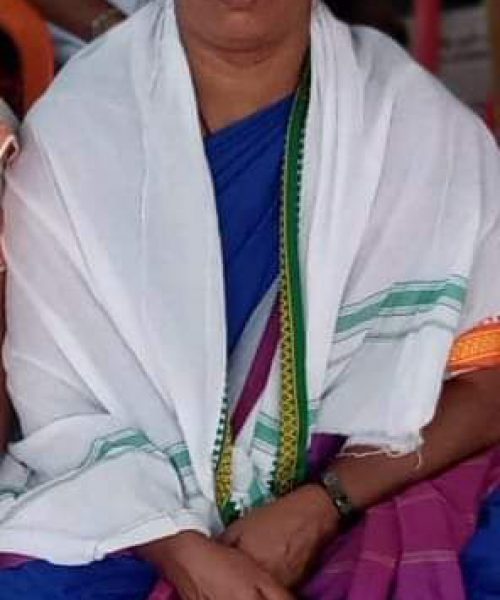
“Caste and communities are major factors in each constituency. It is fun to see Kerala shedding its progressive mask during elections,” said Rekha Raj of Mahatma Gandhi university, referring to the popular perception of Kerala being a state where women have achieved considerable empowerment. “Social justice is never a concern for mainstream political parties. That is why we do not have a woman chief minister or even discuss the possibility of a Dalit chief minister.”
Raj believes that women from marginalised communities and transgender persons should get specific reservation within the wider quota for women in elected bodies. “There will be injustice if we do not address the issue of caste. Since the underlying principle of democracy is the choice of majority, marginalised communities like Dalits, Adivasis and transgender persons are naturally sidelined,” she said.
Why women in local bodies do not move up
Kerala reserves 50% of seats in local governance for women, in both cities and villages. In the last two local body elections held in 2015 and 2020, women contested for more than 50% of the seats, including the unreserved ones. With major parties not fielding women in unreserved ones, women have begun contesting from ‘general’ seats as independent candidates.
Women’s collectives such as the statewide Kudumbashree, which have been contesting local body polls, have seen their representation surge. In the 2020 elections, 32% of women elected to Kerala’s local bodies were from Kudumbashree.
Despite the leadership of women in local politics, political parties fail to give them tickets to contest state and general elections.
“Because Rajiv Gandhi introduced women’s reservation, we have a fair presence of women in local bodies. But they are like Bonsai plants–not allowed to grow after a point,” said Noorbina Rasheed, the IUML candidate from Kozhikode South.
“Parties particularly tend to ignore women who prove their mettle in local bodies,” said Ramani P. Nair, the former Thiruvananthapuram district panchayat president. She recently resigned as secretary of Kerala Pradesh Congress Committee in protest against the unfair distribution of tickets to women. “Women get key positions in local bodies solely because of reservation,” she said. “Decisions for Assembly and Lok Sabha elections are taken by men, where women do not even have a say. I belong to a party which made women prime minister, president and party president. But those sentiments are not reflected in the lower ranks.”
Kerala has the youngest mayor and panchayat president in the country–Arya Rajendran, the mayor of Thiruvananthapuram, and Reshma Mariam Roy, the gram panchayat president of Aruvappulam, both aged 21.
Across party lines, women leaders have for long demanded reservation of at least 33% of the seats in parliament and state legislatures as a way towards gender-parity in electoral politics. “Without reservation, we cannot expect men to share the power they have been enjoying for a long time,” said Rasheed.
We believe everyone deserves equal access to accurate news. Support from our readers enables us to keep our journalism open and free for everyone, all over the world.
